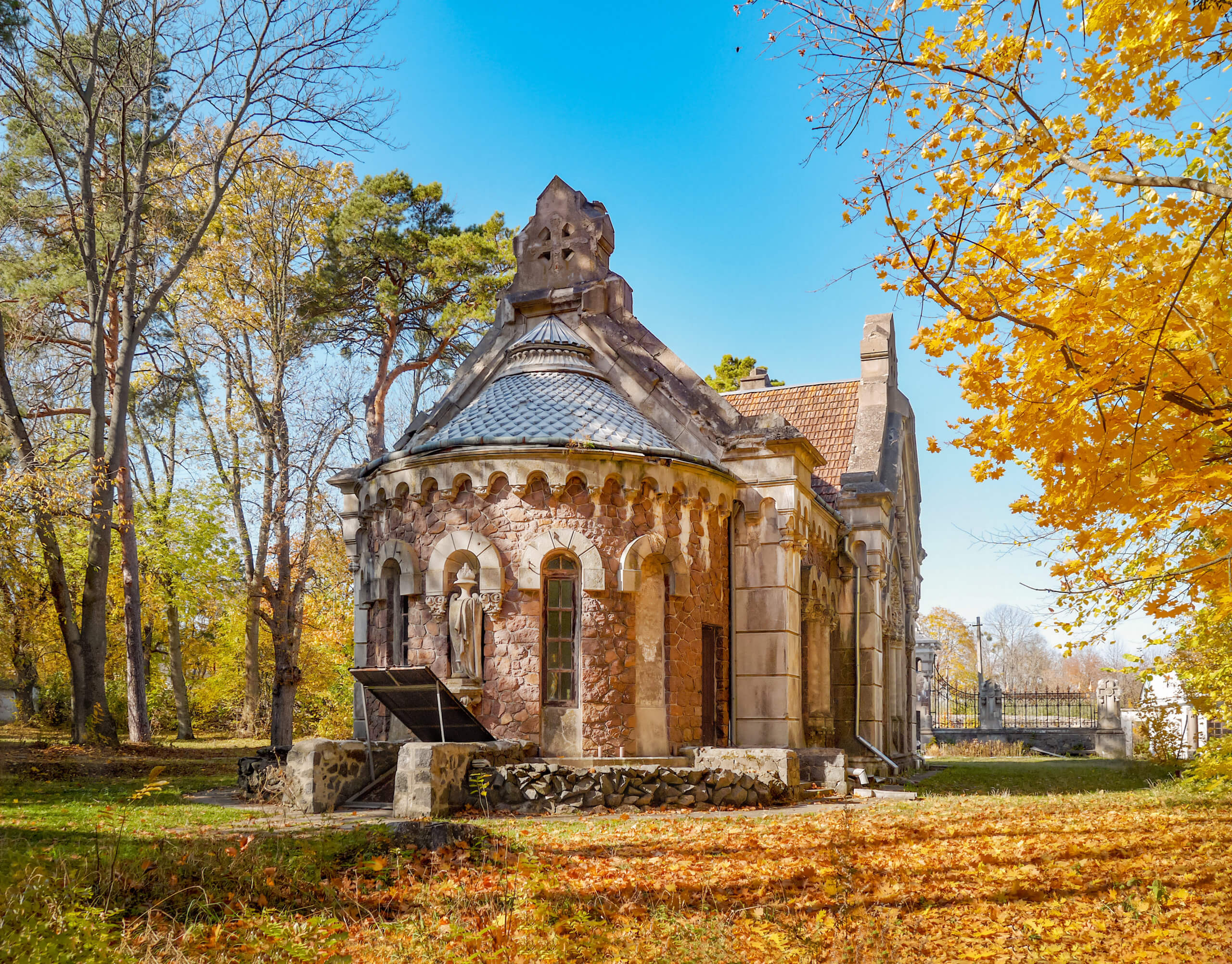Above: Potocki Mausoleum Chapel in Pechera, Vinnytsia Oblast, Ukraine. Public Domain.
AGAINST TWO EVILS
The death of Elizabeth II and accession of Charles III have pushed the Ukrainian War off the front page – as indeed that conflict has done for COVID. While this is a doubtless a tribute to the presumed length of the public’s attention span on the part of those who matter, it does not alter reality. In the South and East of Ukraine, Ukrainians and Russians continue to die for reasons that are far from clear for the majority of us.
Having just returned from a trip to Ukraine, I could pretend to be an expert. But although I did indeed see sites of fighting and devastation in the areas that were initially attacked around Kiev and then evacuated by the Russians, I can hardly qualify as such. But I did at last see a country I have always wanted to visit, and apart from the damaged areas was enchanted by. Regardless of one’s opinions on the current conflict, it is a moving experience to visit the glorious St. Sophia’s cathedral, birthplace alike of Ukrainian, Russian, and Belarusan history and Christianity; it is also, alas, a testimony to modern ecclesiastical divisions that it must remain a museum under the control of the State, although the Divine Liturgy does occur there from time to time.
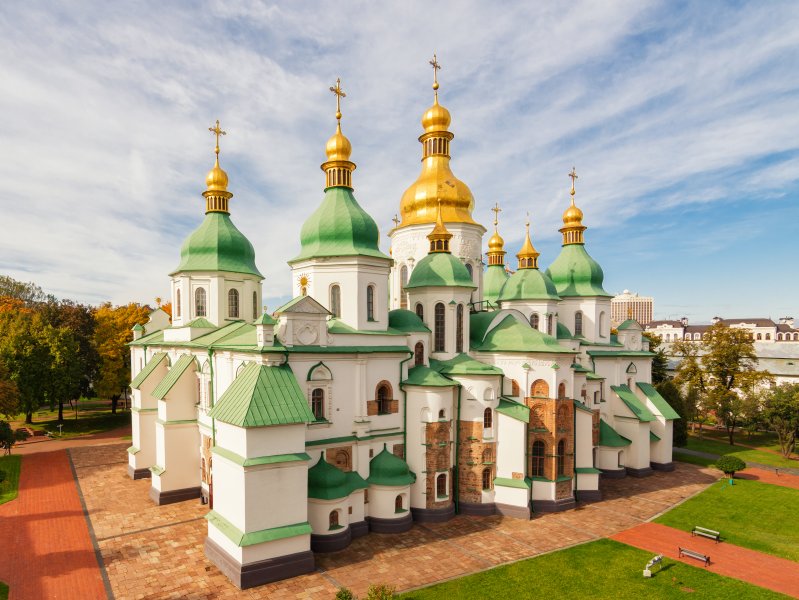
While in that fabled city, which is for Eastern Slavdom what Glastonbury is for Britain and Rheims for France, I also visited the Pechersky Caves, a monastic site filled with Saints’ relics and hosting the grave of Pyotr Stolypin. Arguably the last best hope of Imperial Russia, his assassination in 1911 was as great a catastrophe for his homeland as Franz Ferdinand’s was for Austria-Hungary three years later. Each was leader of the peace party in their respective governments; in many ways their respective demises set the stage for where we are to-day.
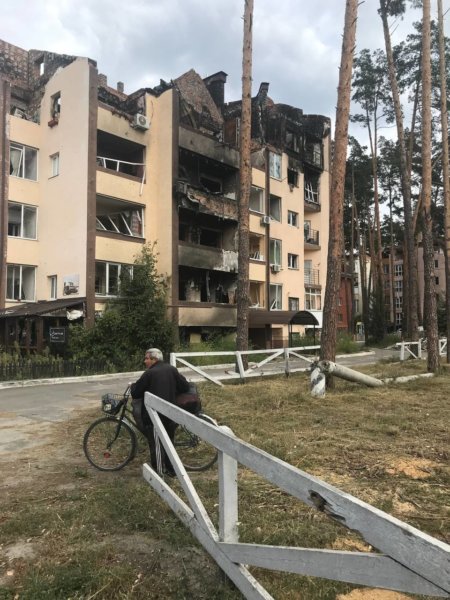
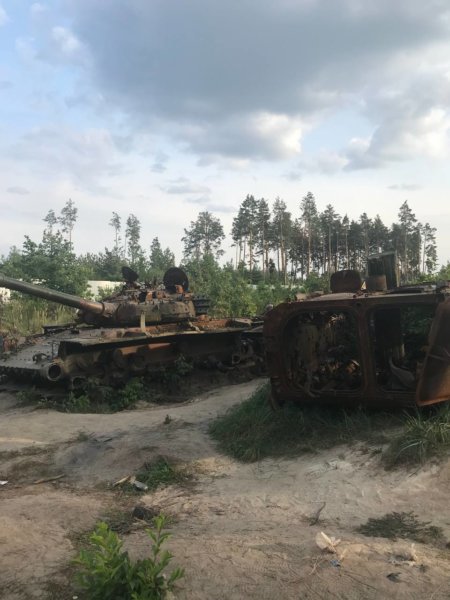
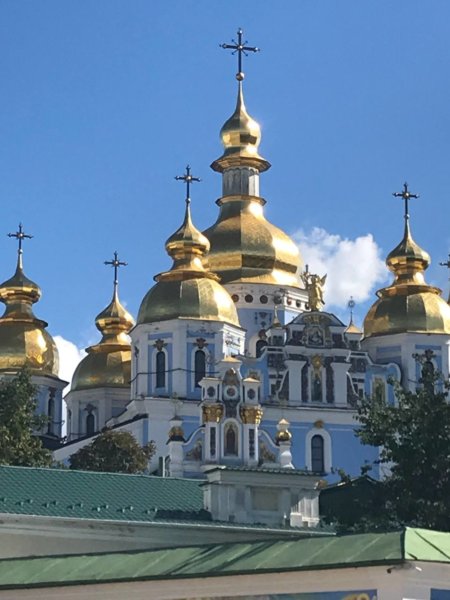

It is ironic that three days before the Russian invasion of Ukraine on February 24 of this year, I had the privilege of speaking with Franz Ferdinand’s great-great nephew, the Archduke Karl von Habsburg on another matter. On the one hand, he was certain Putin would invade, and I was just as certain he would not; as it happens, I was dead wrong, and His Imperial and Royal Highness was dead right. On the other hand, the Archduke had just worked with his daughter on the documentary Navalny, which “Follows the man [Alexander Navalny] who survived an assassination attempt by poisoning with a lethal nerve agent in August 2020. During his months-long recovery he makes shocking discoveries about the attempt on his life and decides to return home,” as IMDB informs us. As might be expected – added to the warnings of his father Otto, son of the last Emperor of Austria, who made Putin’s acquaintance when the latter was still a KGB agent – this experience had not made the Archduke a fan of the current Russian government. He asked me why so many American Conservatives were fans of Putin.
Herein lies the rub, and to the best of my ability I shall try to tease out the various strands of ambiguity that enfold the current conflict for many American and other Conservatives. There are two major narratives to this war, and what seems obvious to the holders of one is invisible to those of the opposite persuasion. So let’s begin.
Putin and US Politics
Firstly, for many Americans, before there was Putin, there was Obama. His gender-bending administration presided over a great many horrific things, from the imposition of gay marriage (thanks to the Supreme Court) to his own executive order cutting off Federal funding – that is, free lunches – to public schools that would not allow boys who self-identify as girls to use girls lavatories and shower-rooms. His cavalier dismissal of those who “cling to guns or religion” – indeed, his supercilious manner and obvious contempt for those who disagreed with him – made Putin look good.
This is an important thing to understand; all the while Obama was lashing what most believers held sacred, Putin was doing just the opposite – praising Christianity and promoting Russian Orthodoxy. Regardless of his sincerity or lack thereof, his words fell upon parched American ears. Nor was that all; while Obama was forcing gender confusion down his subjects’ throats, on June 30, 2013 Putin signed into law a “anti-Gay propaganda bill” which was designed to shield schoolchildren from early exposure to “alternative lifestyles.” For many in the United States, beset by officially sponsored “drag queen story hours,” this seemed like manna from heaven – but it predictably roused outrage in the breast of the American president. A year before the clashes in Syria and Ukraine, the American-Russian relationship took a dive from which it has not recovered. The overthrow of pro-Russian elected Ukrainian president Viktor Yanukovych (a popular rising against a Russian stooge or an illegal Western-backed coup against a legal president, depending upon whom you are speaking to) in February of 2014 did not help matters.
Of course, the hatred of Putin by the Left was merged with their hatred of Trump after his insolent victory in 2016; thusly was manufactured the myth of “Russia stealing the election.” In time, Trump’s supporters would make the same claim about 2020’s snout-counting on a very different basis. Regardless of any of that, once Biden and company were resettled in the White House, it was inevitable that Obama’s feud with Putin would be picked up once more. It was just as inevitable that the new president would do his best to make Putin look good in the eyes of his Conservative opponents. These, in turn, whilst contemplating the fresh horrors pouring out of Pennsylvania Avenue, were reluctant to condemn or to find fault with a man who in their eyes looked so much better that the Sleepy if not Senile Chief Executive. In many ways, Biden has been Putin’s best propagandist. I myself have often said that because of Putin’s rhetoric – especially during his support of the anti-ISIS effort and in response to the social and “moral” policies of the Western leaders – he would one day be the most powerful politician in Europe.
The Russian Invasion Viewed from the States
Then came February 24, 2022. As is our custom in the United States, foreign events were seen through the prism of our own domestic politics. Moreover, the president of Ukraine, an individual deeply committed to what passes for values amongst Western elites, did not win the hearts and minds of American Conservatives. Unpopular as he and his views were among many – possibly the majority – of his own constituents at the time of the invasion, he won a great deal of respect by contemptuously refusing Biden’s offer of a quick evacuation and digging in for the long haul.
Herein truly lies the rub. Regardless of whatever justifications may be claimed – or what merit they may indeed have – Russia did invade, not the reverse. Apartment houses and hospitals were bombed; in some places frightened or trigger-happy Russian soldiers shot civilians, while in others they were rather more restrained. The strengths and weaknesses of the Russian Army were revealed for all the World to see.
Some argue that this was/is the beginning of a Hitleresque grand strategy to subjugate all of Europe; others that it was simply Russia reoccupying space essential to its security. What were certainly war crimes are inflated by others to the scale of genocide. What is certain at the moment is that Putin’s initial strategy – if it was indeed intended to be a quick snatch-and-grab – has failed. The Ukrainians are a tough people; from 1945 to 1957, their “Forest Brethren” fought a guerilla war against the Red Army without even a hope of victory. If Afghanistan was one kind of trap, Ukraine may well be another. But in the meantime, young Ukrainians and Russians continue to die, the upcoming generations of both countries shall have more bitterness sown into their youthful hearts, and on it goes.
Meanwhile, in the United States, the holders of the two narratives continue to castigate each other through the prism of domestic politics – something exacerbated by the Ukrainian Parliament’s bringing up gay marriage in the midst of the bloodshed. While this move was no doubt designed to secure more essential support from the rainbow-covered governments of the West, it can only serve to discredit the Ukrainian cause further in the eyes of those governments’ own domestic opponents. So it is that the American political rhetoric becomes ever more shrill: if you question either the rightness of the Ukrainian cause or the wisdom of backing it entirely to the hilt, you are a collaborator with Russia and no doubt a homophobe; if you recognise the valour of the Ukrainian resistance and say that they are defending their homeland against aggression, you are a tool of the State Department, a supporter of abortion, and (as this writer was called recently online), a stooge of the FBI. Truly, as Churchill said, in wartime the first casualty is truth – and that is never truer than in these United States.
Rhetoric aside, however, there are certain realities that must be looked at. One is that the two sides have goals that are truly irreconcilable. For the Ukrainian government, victory means not only pushing the Russians out of the areas that they occupied this year, but out of Donbass and Crimea – the one of which has been fought over since and the second annexed by Russia in 2014; it also means the freedom to join the EU and NATO if it wishes to. For Putin, it means at the very least retention of Donbass and Crimea, and installation of a government in Kiev which is at worst committed to neutrality like Austria, and at best a wholly-owned subsidiary as with Belarus.
Worldwide Effect
Another is that this conflict is already having repercussions overseas. Due to sanctions against Russia, fuel and food prices are rising steadily, to join the COVID-induced inflation among the world’s ills. At the same time, with Russia’s military engaged in Ukraine, Azerbaijan has seized the opportunity to attack Armenia. If Russia is now unable to maintain peace in the Caucasus, another outbreak may soon occur with Georgia and its neighbours. Much has been made of Russia’s rapprochement with China and Iran as a result of the current conflict; but one wonders what these “allies” will do if they perceive Russia to be weak!
In truth, the conflict is quite literally a bloody mess (in both senses); one does not see how peace can occur anytime soon – and of course there is the fear of a larger and nuclear war behind it all. Looking at the current situation reminds one very much of what faced Bl. Emperor Karl in his attempts to end World War I during his short (1916-18) active reign over Austria-Hungary. His German allies were only seriously interested in peace when the war was turning against them, and reverted to demanding total victory when fortune favoured them – as did his opponents in the Entente. The result, of course, was the death of thousands more than if the holy Emperor had been heeded by the other belligerents.
It seems to me, now more than ever, that those of us who are not directly involved – that is to say, not in positions of power, and not members of either the Ukrainian or Russian military – need to try to keep our heads clear. Without a doubt, whatever can be done to assuage the suffering population of the Ukraine must be done, and we should contribute to it as we can. But we must pray very hard that sanity prevails. A particular patron of this cause would surely be Bl. Karl, who himself experienced combat in Ukraine, and trod the heavy – and ultimately disastrous – risk to himself: the dangerous road of peacemaker. The nations he once ruled in Central Europe are at once menaced by the ambitions of Russia and the decadence of the West – and seem paradoxically to be healthier than either. May his deathbed sacrifice of his suffering for their reunion bear fruit, for their sake, and for ours.
All photos by the author unless noted.

